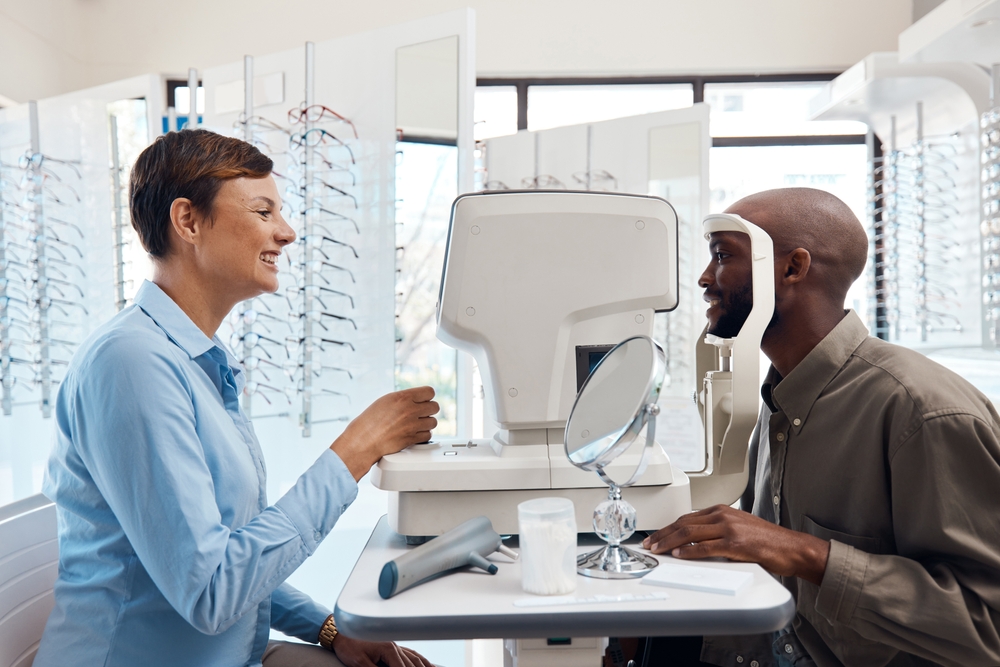
Glaucoma, often called the "silent thief of sight," is a complex eye condition that can lead to irreversible vision loss if left untreated. One of the most important factors in managing glaucoma is monitoring intraocular pressure (IOP), commonly known as eye pressure. Regular monitoring and management of eye pressure can help slow the progression of glaucoma, preserving vision and enhancing the quality of life for those affected.
The Link Between Eye Pressure and Glaucoma
Eye pressure is the fluid pressure within the eye, similar to how blood pressure measures the force within your arteries. In a healthy eye, a balanced flow of fluid maintains normal pressure, but for individuals with glaucoma, this pressure may increase due to a buildup of fluid. This increased pressure can damage the optic nerve, the part of the eye responsible for transmitting visual information to the brain. The resulting optic nerve damage can lead to peripheral vision loss and, over time, may result in complete blindness if not managed properly. Here’s why monitoring eye pressure is vital and how it can make a difference in glaucoma management.
Early Detection of Glaucoma Progression
Eye pressure alone doesn’t always indicate glaucoma, as there are cases of normal-tension glaucoma where optic nerve damage occurs despite average pressure levels. However, elevated eye pressure is a significant risk factor. Monitoring it regularly allows eye care specialists to detect subtle changes early, which is essential because the disease often progresses slowly and without noticeable symptoms in its initial stages.
Preventing Further Optic Nerve Damage
Consistent monitoring enables timely adjustments in treatment. For those diagnosed with glaucoma, controlling eye pressure can help reduce the risk of further optic nerve damage. Treatment may involve medication, laser therapy, or surgical options designed to lower eye pressure. Routine eye exams help ensure that these treatments are effective and, if necessary, adjusted to maintain optimal pressure levels.
Assessing Treatment Effectiveness
Treatment for glaucoma is highly individualized, as what works for one person may not work for another. By monitoring eye pressure regularly, doctors can evaluate how well a treatment is working. If eye pressure remains high despite treatment, adjustments may be necessary to protect the optic nerve and prevent vision loss.
Detecting Pressure Fluctuations
Eye pressure can fluctuate throughout the day due to various factors, including stress, medication, and lifestyle choices. Monitoring these fluctuations helps doctors understand a patient's unique pressure pattern. Knowing these variations allows for better treatment planning, as some individuals may benefit from adjustments in medication timing or lifestyle changes to help stabilize pressure.
Methods for Monitoring Eye Pressure
At Sylvain Eye Care P.C., we use various techniques to measure and monitor eye pressure. One common method is tonometry, a painless test that applies gentle pressure to the eye. Advanced imaging and optic nerve assessments are also part of a comprehensive glaucoma check-up, giving us a full picture of the eye’s health and helping to detect even slight changes in pressure or optic nerve appearance over time.
When Should You Get Tested?
For those at risk of glaucoma — including individuals over 40, those with a family history of glaucoma, and people of African, Hispanic, or Asian descent — regular eye exams are essential. The frequency of exams depends on individual risk factors, but a good rule of thumb is to have an eye exam at least every two years. If you’re diagnosed with glaucoma, your eye care provider may recommend more frequent visits to keep a closer eye on your condition.
Steps You Can Take to Help Manage Eye Pressure
While monitoring eye pressure is the foundation of glaucoma management, there are a few lifestyle changes that can help maintain eye health and potentially reduce pressure:
Exercise Regularly: Low-impact exercises like walking and swimming can help reduce eye pressure.
Follow Medication Instructions Carefully: If prescribed, eye drops or other medications must be taken consistently to be effective.
Avoid Excessive Caffeine and Alcohol: These substances can sometimes cause fluctuations in eye pressure.
Practice Stress Management Techniques: High stress can temporarily raise eye pressure, so practices like meditation, deep breathing, and mindfulness can be beneficial.
Partner with Sylvain Eye Care P.C. for Glaucoma Management
We are dedicated to preserving your vision and helping you maintain a high quality of life. Our comprehensive eye exams include thorough glaucoma screenings and eye pressure monitoring to help detect any signs of glaucoma early on. By keeping an eye on your intraocular pressure, we can work together to slow the progression of glaucoma and safeguard your vision for years to come.
If you have concerns about glaucoma or are due for an eye exam, reach our to Sylvain Eye Care P.C. to schedule an appointment. Visit our office in Atlanta, Georgia, or call (404) 341-4350 today.









